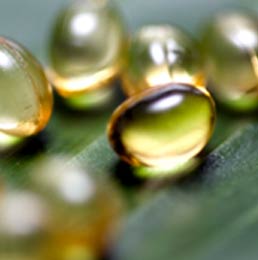
Vitamin D is crucial for your overall health. Among other jobs in the body, it helps maintain strong bones, regulate immune activity and reduce inflammation. Now new evidence suggests that it may have specific benefits for knee osteoarthritis. A study found that higher vitamin D levels may be associated with less cartilage loss in the knee over a three-year period (Arthritis & Rheumatism, May 2009).
The study, conducted in Australia, included 880 randomly selected men and women between ages 51 and 79. To check for osteoarthritis, researchers looked at X-ray images of the participants’ knees. They also used MRI images to measure cartilage volume and asked participants to rate the severity of any knee pain.
To assess vitamin D, researchers measured vitamin D levels in the participants’ blood. They also questioned participants about how much sun they got, as vitamin D can be manufactured by the skin after exposure to sunlight.
People who started the study with insufficient vitamin D were more likely to have signs of knee osteoarthritis than those who got enough of the vitamin. About 40% of the people in the study also had another MRI three years later, which showed that people with higher vitamin D levels tended to have less cartilage loss — evidence that osteoarthritis had progressed less rapidly in this group.
The researchers stated that their data suggested that getting enough vitamin D may slow worsening of knee osteoarthritis. And they aren’t the only ones to make that suggestion. Another large study — this one done in the Netherlands — yielded similar findings (Journal of Clinical Rheumatology, August 2009). Scientists are still unsure exactly how osteoarthritis and vitamin D might be linked. However, vitamin D has been seen to bind to special receptors in cartilage, where it may affect cartilage cells and chemical activity.
Many people in the United States have blood levels of vitamin D that are thought to be too low for optimal health, and almost no one has levels that are too high. Consequently, experts say that getting ample vitamin D should be a priority for all Americans. If you’re at increased risk for vitamin D insufficiency — for example, if you are over age 50, have dark skin, are obese or have certain medical conditions such as Crohn’s disease or celiac disease — your doctor might recommend getting a simple blood test to check your vitamin D level.
Although the body can make its own vitamin D when sunlight strikes the skin, experts advise limiting sun exposure due to the risk of skin cancer. Plus, if you’re over age 50, your skin may not make vitamin D as efficiently as it once did. Factors such as skin color and geographical location also affect how much vitamin D your skin produces. Rather, the safest, most reliable route to getting enough of the vitamin is through your diet.
Only a few foods — such as salmon, mackerel and tuna — are naturally rich in vitamin D. But the vitamin is added to some other foods, such as vitamin D-fortified milk, yogurt, orange juice and breakfast cereal. All these foods are great choices for boosting vitamin D intake. Some are also high in bone-strengthening calcium, and since your body needs vitamin D to use calcium properly, that’s a super pairing.
Vitamin D is a powerhouse when it comes to your general health, and research indicates that it could have specific benefits for your knee osteoarthritis as well. If you’re concerned that you might not be getting enough of this essential vitamin, talk to your doctor. In some cases, your doctor may recommend getting a blood test to check your vitamin D level and/or taking additional vitamin D in a supplement.
PLEASE NOTE: The studies and their findings that are presented in this article are for informational purposes only and are not meant to take the place of the advice of your doctor. By providing you with this information, Sanofi is not endorsing its content nor does it represent that the information is necessarily appropriate for you. You should consult with your doctor before starting any new health or exercise regimen.
References“Serum Levels of Vitamin D, Sunlight Exposure, and Knee Cartilage Loss in Older Adults: The Tasmanian Older Adult Cohort Study.” C. Ding et al. Arthritis & Rheumatism. May 2009, vol. 60, no. 5, pp. 1381-1389.
“Vitamin D Status, Bone Mineral Density, and the Development of Radiographic Osteoarthritis of the Knee: The Rotterdam Study.” A.P. Bergink et al. Journal of Clinical Rheumatology. August 2009, vol. 15, no. 5, pp. 230-237.
“Expression of vitamin D receptors and matrix metalloproteinases in osteoarthritic cartilage and human articular chondrocytes in vitro.” Tetlow L.C, Woolley DE. Osteoarthritis Cartilage. 2001; 9:423-31.